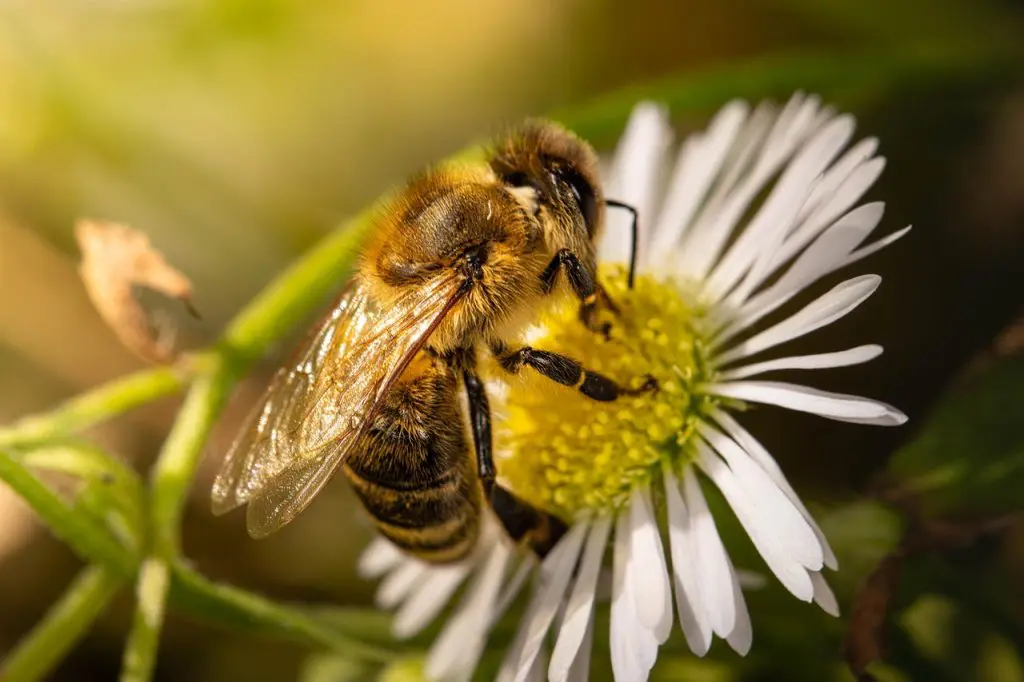
How You Can Help Native Irish Honeybees Cork-based beekeeper Hanna Bäckmo, founder of Hanna’s Bees, is passionate about the vital role that native Irish honeybees play in supporting biodiversity and food systems. With threats to bees growing due to habitat loss, pesticide use, and imported non-native species, Bäckmo shares simple, practical ways we can all […]
Cork-based beekeeper Hanna Bäckmo, founder of Hanna’s Bees, is passionate about the vital role that native Irish honeybees play in supporting biodiversity and food systems. With threats to bees growing due to habitat loss, pesticide use, and imported non-native species, Bäckmo shares simple, practical ways we can all help.
Native Irish honeybees (a strain of Apis mellifera mellifera) have evolved to thrive in Ireland’s unique climate. These bees:
Pollinate early in the year, even in winter
Support biodiversity by pollinating wildflowers and crops
Contribute to food security, with 1 in 3 mouthfuls of food dependent on pollinators, according to the WWF
Help achieve UN Sustainable Development Goals, particularly those related to food, ecosystems, and sustainable communities
Despite their importance, these bees face rising challenges including habitat destruction, pesticide exposure, and competition from imported bees.
Habitat destruction: Urbanisation, intensive farming, and land-use changes have drastically reduced wildflower meadows and natural nesting sites essential for native bees.
Pesticide exposure: Chemicals used in agriculture and gardening can impair bees’ navigation, weaken their immune systems, and reduce reproductive success.
Climate change: Shifting weather patterns disrupt bees’ foraging patterns and flowering times, reducing access to food sources when they are most needed.
Competition from imported bees: Non-native honeybees can outcompete native bees for resources and introduce diseases to which native populations have little resistance.
Loss of genetic diversity: Cross-breeding with imported species threatens the unique traits of the native Irish honeybee, which is well-adapted to Ireland’s climate.
Originally from Sweden, Bäckmo moved to Ireland in 2001. After nearly two decades as a wedding dress designer, she began gardening on a half-acre plot in Little Island, East Cork. Her interest in growing peaches and nectarines, which flower early when pollinators are scarce, led her to beekeeping.
‘The only way for me to get peaches was to get honeybees,’ she explains.
She completed a beginner’s course in 2014 and started with a single hive. Now, she manages around 70 hives, driven by a fascination with pollination and the natural behaviour of bees.
During summer, bees may occasionally enter homes. Bäckmo advises calm rather than panic:
Bees aren’t attracted to human food – if a flying insect is hovering around your plate, it’s probably a wasp (which has yellow legs, unlike the bee’s brown or black legs).
Bees often get lost, and can be gently guided back outside via an open window.
They pose minimal threat – bees only sting as a last resort, and it’s fatal for them.
Bäckmo offers several ways to support native bees:
Choose open flowers that bees can access easily, such as:
Fuchsia
Brambles
Native wildflowers
Some flowers also protect nectar from rain, which is key in Ireland’s damp climate.
Avoid using:
Herbicides
Pesticides
Fungicides
These harm pollinators and disrupt ecosystems. Bäckmo encourages people to question why they use chemicals and how they might farm or garden more sustainably.
Supporting local beekeepers helps native bee populations and ensures you’re buying the real thing. Bäckmo’s raw Irish honey costs more than supermarket imports, but with up to 46% of imported honey in the EU found to be adulterated with sugar syrups, the price reflects its authenticity.
‘People want to be sure they’re getting real Irish honey and are willing to pay the price for it. That’s really uplifting,’ she says.
Her product range also includes:
Beeswax wraps
Propolis tincture
Bee pollen
Beeswax candles
All are made using materials from her hives, with a focus on natural health and environmental sustainability.
You can learn more from Hanna Bäckmo at this year’s Cork on a Fork Festival on the 13th to 17th of August 2025, where Hanna’s Bees is participating in events such as:
A beekeeper’s picnic
A producers’ bus tour
A teddy bear’s picnic
More information at: hannasbees.ie
Honeybees are a small but mighty force in protecting biodiversity and food systems. Simple actions like planting pollinator-friendly flowers, avoiding harmful chemicals, and supporting Irish beekeepers can make a meaningful difference. And next time a bee visits your kitchen? Gently show it the way out, it has important work to do.
Native Irish honeybees (Apis mellifera mellifera) are vital pollinators adapted to Ireland’s climate. They pollinate crops and wildflowers, even in colder months, supporting biodiversity and ensuring food production. According to WWF, one in three bites of food we eat depends on pollinators like these bees.
Native Irish honeybees face multiple threats, including:
– Habitat loss from urbanisation and farming
– Pesticide and herbicide exposure
– Climate change affecting flowering cycles
– Competition and disease from imported bee species
– Loss of genetic diversity due to crossbreeding
You can help by:
– Planting open, native flowers like fuchsia and brambles
– Avoiding pesticides, herbicides, and fungicides
– Ensuring flowers bloom across different seasons for year-round forage
– Leaving patches of bare soil or building bee hotels for nesting
Stay calm. Bees are usually just lost and can be gently guided back outside through a window. They are not attracted to human food (unlike wasps), and they only sting when provoked, a sting is fatal for the bee.
Irish honey supports native bees and local biodiversity. Unlike many imported honeys (46% of which may be adulterated with sugar syrups) locally sourced honey from beekeepers like Hanna Bäckmo is pure, traceable, and sustainable. Supporting local also helps preserve traditional beekeeping practices.